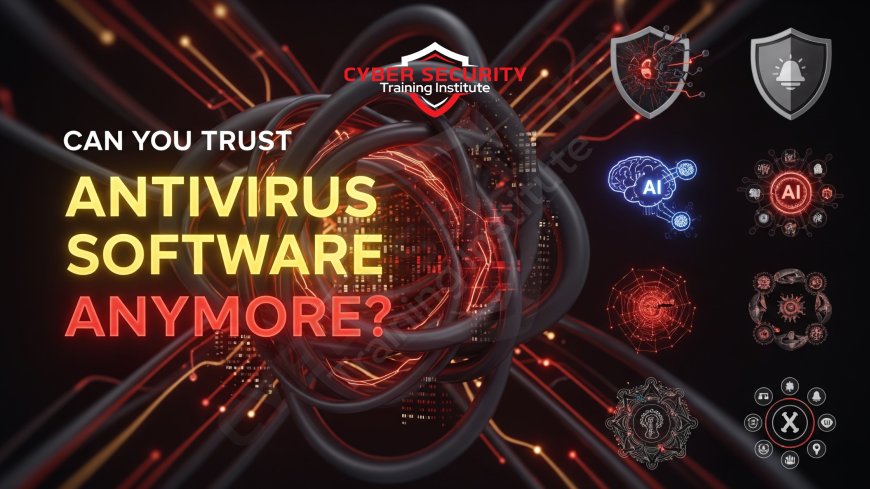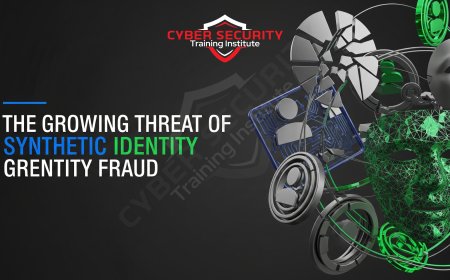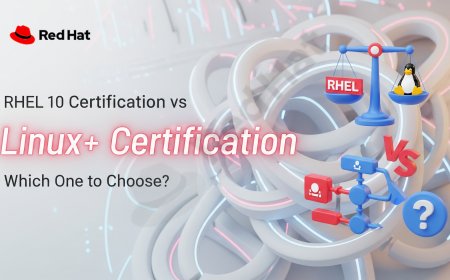Can You Trust Antivirus Software Anymore?

Table of Contents
- The Evolution of Antivirus Software
- How Antivirus Software Works
- Challenges Facing Antivirus Software Today
- Antivirus Software Comparison
- Alternatives to Traditional Antivirus
- Best Practices for Staying Safe Online
- Conclusion
- Frequently Asked Questions
The Evolution of Antivirus Software
Antivirus software has come a long way since its inception in the late 1980s. Back then, viruses were simple pieces of code that spread through floppy disks, causing mischief like deleting files or slowing down computers. Early antivirus programs, like McAfee’s VirusScan, were designed to detect and remove these specific threats by scanning for known “signatures”—unique pieces of code that identified a virus.
As the internet exploded in the 1990s and 2000s, so did the variety and complexity of threats. Hackers started creating worms, trojans, and spyware, which could steal data or hijack systems without users noticing. Antivirus companies responded by adding real-time scanning, firewalls, and email protection to their software. By the 2010s, threats like ransomware—which locks your files and demands payment—pushed antivirus programs to include behavioral analysis, which looks for suspicious activity rather than just known virus signatures.
Today, antivirus software is often part of a broader “internet security suite” that includes tools like VPNs (Virtual Private Networks), password managers, and anti-phishing protections. But with cybercriminals using artificial intelligence (AI) and other advanced techniques, the question remains: can antivirus software keep up?
How Antivirus Software Works
To understand whether antivirus software is trustworthy, it helps to know how it works. Most antivirus programs use a combination of methods to protect your device:
- Signature-Based Detection: This is the traditional method, where the software compares files to a database of known malware signatures. If there’s a match, the file is flagged and quarantined.
- Heuristic Analysis: This looks for suspicious behavior, like a program trying to modify system files or send data without permission. It’s useful for catching new, unknown threats.
- Real-Time Scanning: Modern antivirus programs monitor your system constantly, checking every file you download or program you run.
- Cloud-Based Protection: Some antivirus tools analyze threats in the cloud, reducing the load on your device and allowing faster updates to threat databases.
- Machine Learning: Newer antivirus programs use AI to predict and identify threats based on patterns, even if they’ve never seen the malware before.
These methods sound impressive, but they’re not foolproof. Let’s explore why.
Challenges Facing Antivirus Software Today
Antivirus software faces several hurdles that make people question its reliability:
- Speed of New Threats: Cybercriminals release thousands of new malware variants daily. Signature-based detection struggles to keep up, as it relies on updates to recognize new threats.
- Zero-Day Exploits: These are vulnerabilities in software that hackers exploit before developers can fix them. Even the best antivirus might not catch these until it’s too late.
- Polymorphic Malware: This type of malware changes its code to avoid detection, making it hard for signature-based systems to spot it.
- User Error: No antivirus can protect you if you click on a phishing link or download a malicious file. Human mistakes are a weak link.
- Performance Impact: Some antivirus programs slow down your computer, especially during scans, which can frustrate users.
- Privacy Concerns: Some antivirus companies have been criticized for collecting user data, raising questions about whether they’re as trustworthy as they claim.
These challenges don’t mean antivirus software is useless, but they highlight its limitations. No single tool can guarantee 100% protection, especially in a world where hackers are constantly innovating.
Antivirus Software Comparison
Not all antivirus programs are created equal. Below is a comparison of four popular antivirus solutions in 2025, based on their features, performance, and reliability.
| Antivirus | Key Features | Pros | Cons |
|---|---|---|---|
| Norton 360 | Real-time protection, VPN, password manager, cloud backup | High detection rates, user-friendly interface | Expensive, some features require subscription |
| Bitdefender | Anti-phishing, ransomware protection, minimal system impact | Fast scans, excellent malware detection | Complex interface for beginners |
| Windows Defender | Built-in to Windows, real-time protection, firewall | Free, seamless integration with Windows | Limited features compared to paid options |
| Malwarebytes | Anti-malware, ransomware protection, browser guard | Great for removing existing infections | Limited real-time protection in free version |
This table shows that each antivirus has strengths and weaknesses. For example, Windows Defender is free and good enough for basic protection, but paid options like Norton or Bitdefender offer more advanced features.
Alternatives to Traditional Antivirus
Given the limitations of antivirus software, many experts recommend complementing it with other security measures:
- Endpoint Detection and Response (EDR): EDR tools monitor devices for suspicious activity and respond automatically, often used by businesses but increasingly available for home users.
- Firewalls: A firewall acts like a gatekeeper, controlling what data enters and leaves your device. Most operating systems have built-in firewalls, but third-party options offer more control.
- Ad Blockers: These block malicious ads that can deliver malware to your device.
- Regular Software Updates: Keeping your operating system and apps updated patches vulnerabilities that hackers exploit.
- Secure Browsers: Browsers like Brave or Firefox with privacy extensions can reduce tracking and block malicious scripts.
Combining these tools with antivirus software creates a layered defense, making it harder for cybercriminals to succeed.
Best Practices for Staying Safe Online
Antivirus software is just one piece of the puzzle. Here are some practical tips to stay safe online:
- Use Strong Passwords: Create unique, complex passwords and use a password manager to keep track of them.
- Enable Two-Factor Authentication (2FA): This adds an extra layer of security by requiring a second form of verification, like a code sent to your phone.
- Be Wary of Emails: Don’t click links or download attachments from unknown senders. Phishing emails are a common way malware spreads.
- Back Up Your Data: Regularly back up important files to an external drive or cloud service to protect against ransomware.
- Educate Yourself: Learn to recognize signs of scams, like urgent demands for money or suspicious website URLs.
By combining these habits with antivirus software, you can significantly reduce your risk of falling victim to cyber threats.
Conclusion
So, can you trust antivirus software anymore? The answer isn’t a simple yes or no. Antivirus software remains a valuable tool for protecting against many types of malware, but it’s not a silver bullet. Modern cyber threats are more complex than ever, and antivirus programs struggle to keep up with zero-day exploits, polymorphic malware, and user errors. However, trusted antivirus solutions like Norton, Bitdefender, or even Windows Defender can still catch a wide range of threats when combined with good online habits.
The key is to use antivirus software as part of a broader security strategy. Regular software updates, strong passwords, two-factor authentication, and a healthy dose of skepticism about emails and links can go a long way. By staying informed and proactive, you can trust your antivirus to do its part while you do yours. Cybersecurity is a shared responsibility—your antivirus is your partner, not your savior.
Frequently Asked Questions
Is antivirus software still necessary in 2025?
Yes, antivirus software is still necessary as it provides a baseline defense against malware, viruses, and other threats, though it should be paired with other security practices.
Can antivirus software protect against all cyber threats?
No, antivirus software cannot protect against all threats, especially zero-day exploits or phishing attacks that rely on user error.
Is free antivirus software reliable?
Free antivirus software, like Windows Defender, can be reliable for basic protection but often lacks advanced features found in paid versions.
What is a zero-day exploit?
A zero-day exploit is a vulnerability in software that hackers exploit before developers can release a fix.
Can antivirus software slow down my computer?
Some antivirus programs can slow down your computer, especially during scans, but modern options like Bitdefender are designed to minimize performance impact.
Do I need antivirus software if I use a Mac?
Yes, while Macs are less prone to viruses, they’re not immune to malware, and antivirus software can provide extra protection.
What is polymorphic malware?
Polymorphic malware changes its code to evade detection, making it harder for antivirus software to catch.
Can antivirus software protect against ransomware?
Many antivirus programs include ransomware protection, but regular backups and cautious online behavior are also critical.
Is Windows Defender enough for protection?
Windows Defender is sufficient for basic protection but may not offer the advanced features of paid antivirus software.
Do antivirus companies collect my data?
Some antivirus companies collect user data for analytics or improvement purposes, so check their privacy policies before choosing one.
Can antivirus software protect my smartphone?
Yes, many antivirus programs offer mobile apps to protect smartphones from malware and phishing attacks.
What is heuristic analysis in antivirus software?
Heuristic analysis looks for suspicious behavior in programs, helping detect new or unknown threats.
Should I run multiple antivirus programs at once?
No, running multiple antivirus programs can cause conflicts and slow down your system. Choose one trusted solution.
Can antivirus software remove existing malware?
Yes, most antivirus software can remove existing malware, with tools like Malwarebytes specializing in cleanup.
What is a VPN, and do I need one with antivirus?
A VPN encrypts your internet connection for privacy. It’s not essential but complements antivirus for added security.
How often should I scan my computer for viruses?
Run a full system scan weekly or monthly, but enable real-time scanning for ongoing protection.
Can antivirus software protect against phishing?
Many antivirus programs include anti-phishing features, but user awareness is crucial to avoid scams.
What’s the difference between antivirus and anti-malware?
Antivirus focuses on viruses, while anti-malware covers a broader range of threats like spyware and ransomware.
Do I need antivirus if I only browse safe websites?
Even safe websites can host malicious ads or scripts, so antivirus software is still recommended.
How do I choose the best antivirus software?
Look for high detection rates, minimal system impact, and features like real-time scanning or ransomware protection that fit your needs.
What's Your Reaction?
 Like
0
Like
0
 Dislike
0
Dislike
0
 Love
0
Love
0
 Funny
0
Funny
0
 Angry
0
Angry
0
 Sad
0
Sad
0
 Wow
0
Wow
0

















